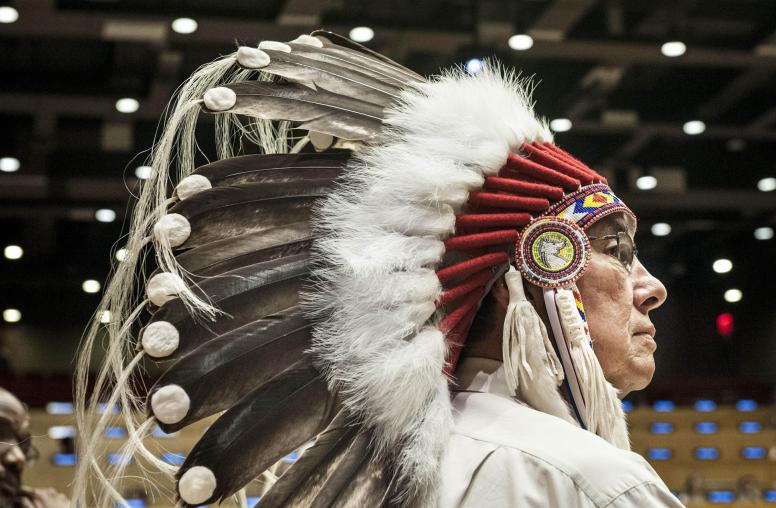Religions, Beliefs, and Human Rights: A “Faith for Rights” Approach
Faith-based actors and the values they bring have informed both the advocacy and advancement of human rights. From taking a stand against discrimination and hate speech to promoting and protecting minority rights, faith-based actors are often well-positioned to help lead in the fight to guarantee human rights for all. And given an intrinsic link between human rights and peacebuilding, faith-based actors have a unique opportunity to support human rights to create partnerships for peace.
This online course uses the peer-to-peer learning methodology of the #Faith4Rights Toolkit for religious and faith-based actors, policymakers, and practitioners to explore these links. This serves as a practical guide for protecting and promoting human rights to prevent, manage, and resolve violent conflict.
Participants may benefit from taking the Religion and Peacebuilding micro-course, the Religious Engagement in Peacebuilding course, and/or the Religions and Peace Academy Online Course before enrolling in this one.

Course Objectives
By the end of this course, you will be able to:
- Describe why, and how, thoughtful religious engagement can be important to advancing peacebuilding and human rights objectives.
- Understand how human rights are intrinsic to peace and conflict, and how and why human rights and peacebuilding practitioners can effectively partner.
- Appreciate the significance of religions, beliefs, and values in leveraging the protection of universal human rights to reduce the risk of violent conflict.
- Recognize, through examples, how religious peacebuilding approaches can inform the advancement of human rights.
- Consider opportunities to build the capacities of religious actors to support their engagement in peacebuilding and human rights through a do-no-harm approach.
- Identify approaches and tools that can lead to more effective engagement of religious actors in human rights and peacebuilding.
Chapter 1: Religious Leaders as Peacebuilders
This chapter will investigate the connections between religion, human rights, and peacebuilding.
Chapter 2: Religious Resources as a Contribution to Universal Values
This chapter explores how religious actors and resources can advance or impede human rights and peacebuilding work.
Chapter 3: Past, Present, and Future Challenges
This chapter seeks to answer the question, "What might a faith for rights response look like?" We will look at case studies from the past, present, and future to contextualize faith for rights approaches in peacebuilding scenarios.
Chapter 4: Inspiring Practices
To spark inspiration for your work, this section examines real-life situations where applying the faith for rights commitments has been successful.
Chapter 5: Implementing a "Faith for Rights" Approach
Finally, now we want to help you apply what you have learned in this course to different scenarios.
Chapter 6: Conclusion
This chapter asks you to reflect on what you've learned throughout the course and share your feedback with us. You will also take the final exam and receive your certificate for successful completion of the course.
Course Instructors
- Nazila Ghanea, UN Special Rapporteur on Freedom of Religion or Belief, The United Nations
- Thiago Alves Pinto, Oxford University



